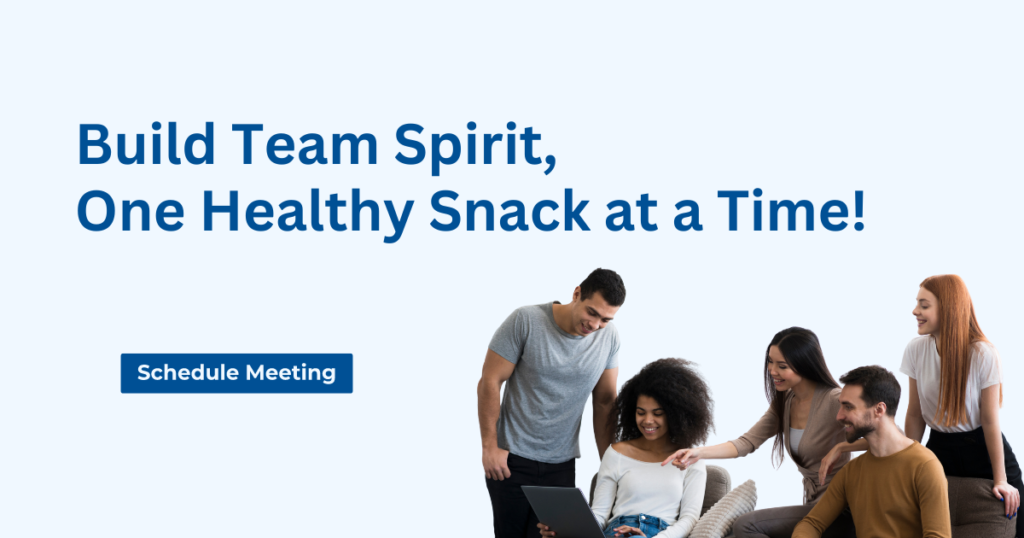Teamwork is one of the most vital components for success in the workplace. It is not built solely in meetings or project discussions; it can often arise in casual settings, like shared snack breaks. These informal moments can serve as opportunities for employees to connect, share ideas, and build stronger relationships that benefit collaboration.
Shared snack breaks can create a comfortable and relaxed environment that promotes team bonding, encouraging open conversations and creative problem-solving. This article will explore the importance of teamwork in the workplace and how something as simple as snack breaks can enhance team collaboration.
1. The Power of Informal Interactions
Informal interactions can have a profound impact on the workplace dynamic. While scheduled meetings are necessary for structured discussions, casual conversations during snack breaks can lead to organic collaboration that wouldn’t otherwise occur. These moments of spontaneity often encourage employees to voice ideas or solutions that they may hesitate to bring up in formal settings.
- Snack breaks naturally create a relaxed and informal atmosphere.
- Employees from different departments, like a marketing specialist and a data analyst, may not interact in formal settings, but during a snack break, they can connect and share insights.
- These cross-departmental interactions can lead to creativity, problem-solving, and innovation.
- For example, John from the sales team might experience a breakthrough idea during a casual snack break conversation, sparking creativity outside the formal work environment.
- Snack breaks help employees step outside their structured roles, allowing for more open and creative discussions.
- These breaks encourage mingling between employees of different departments or hierarchical levels.
- By reducing communication problems, snack breaks open opportunities for cross-team collaboration.
2. Refreshing and Recharging Together
The role of healthy snacks in the workplace extends beyond simple nourishment. By providing employees with healthy options, companies ensure that their workforce remains energized and mentally refreshed throughout the day. Snack breaks offer a moment of reprieve from the hustle of daily tasks, allowing employees to recharge.
- Shared snack breaks help re-energize teams during long work sessions.
- Employees who are well-nourished are more likely to actively participate in team discussions and projects.
- A quick snack break after brainstorming can restore focus and improve problem-solving abilities.
- Refueling together creates a refreshed environment, making employees more willing to contribute effectively.
- Healthy snacks, such as fruits, nuts, or millet-based options, provide sustained energy and prevent afternoon energy crashes.
- A well-fed team is more focused, leading to better collaboration on team projects that need deep concentration.
3. Building Trust Through Social Time
Trust is one of the core foundations of effective collaboration. Without trust, teams cannot function efficiently, and employees may hold back from contributing to the best of their abilities. Shared snack breaks provide a low-pressure environment where trust can naturally develop over time.
- Interacting in social settings during snack breaks helps employees build personal connections.
- These interactions allow employees to see each other as more than just coworkers, sharing common goals.
- Snack breaks foster rapport and camaraderie, which enhances team collaboration.
- Employees may feel more comfortable sharing project challenges in a relaxed setting during snack breaks.
- Team members can offer help or advice during these casual conversations, building trust.
- Trust developed during snack breaks becomes valuable for future projects, improving communication and collaboration.
4. Creating a Positive Workplace Culture
The culture of a workplace has a direct impact on employee morale, loyalty, and retention. A positive workplace culture promotes inclusivity, equality, and teamwork, all of which are necessary for strong collaboration. Shared snack breaks are a simple yet effective way to promote such a culture.
- Encouraging employees to take snack breaks together helps create a space for everyone to interact, regardless of their role or seniority level.
- These shared moments break down barriers between departments and different levels of the organization.
- Snack breaks allow for more candid conversations between colleagues, such as between managers and entry-level employees, promoting openness.
- This openness fosters a culture of inclusivity and transparency, where all employees feel valued.
- Over time, this leads to a positive workplace environment, promoting team loyalty and a sense of connection among employees.
- A positive workplace culture helps retain top talent, as employees who feel included and valued are more likely to stay with the company long-term.
- Shared snack breaks contribute to this inclusive atmosphere by inviting everyone to participate equally, strengthening the team and reducing turnover.

Team collaboration is the backbone of any successful organization. While formal meetings and project discussions are vital, it’s often the informal moments—like shared snack breaks—that truly strengthen team dynamics. Incorporating shared snack breaks into workplace wellness strategies is a simple yet powerful way to enhance team collaboration. By promoting informal interactions, reducing communication silos, and fostering a positive workplace culture, companies can create an environment where employees thrive. Encouraging employees to recharge together not only boosts productivity but also strengthens the bonds that drive teamwork forward. As organizations continue to prioritize workplace wellness, they should consider the value of shared snack breaks in building strong, collaborative teams.




